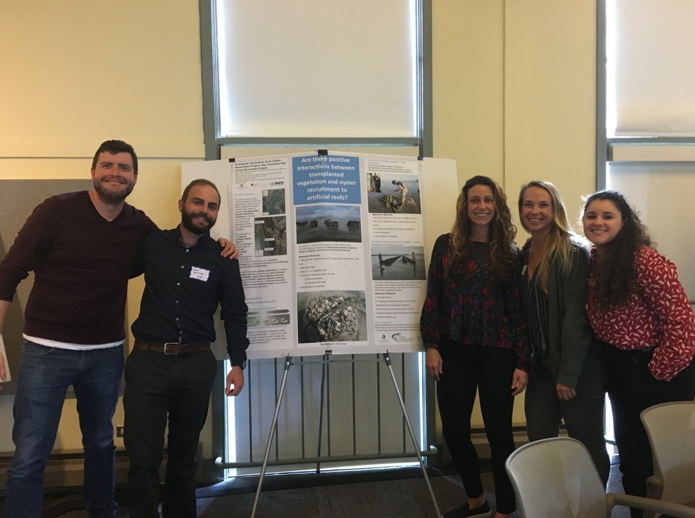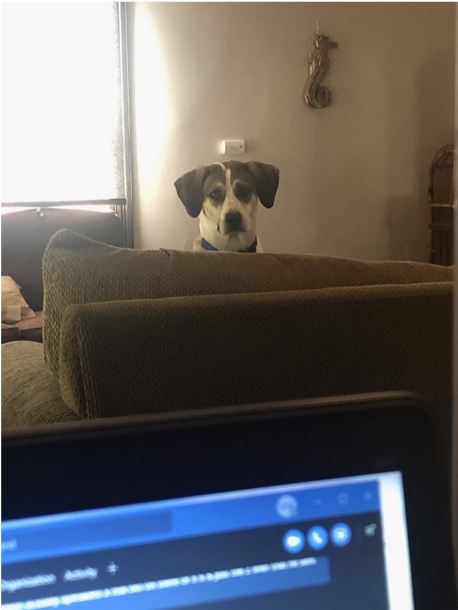When I finally accepted that moving away from the coast to Sacramento for a fellowship was not going to ruin my ocean-minded soul, I placed all of my dive gear, fishing supplies, and other ocean-related toys deep into storage under my bed and set off for a new adventure in the state’s capitol.
I had recently accepted a fellowship with the Ocean Protection Council’s (OPC) Marine Protected Area (MPA) team and I could not be more excited. OPC is a cabinet-level agency that serves as the governor’s advisor on ocean and coastal policy. This was my chance to gain hands-on experience with a major government agency.
I certainly began my fellowship with a bang, joining OPC staff just before their first council meeting of the year. I only managed to mess up the public comment timer once, but to my relief the council did not seem to notice. Phew...
I quickly learned that life at OPC is like traveling at 80 miles per hour in the fast lane of the 5 freeway. Incredible work was being done at blazing speeds and I quickly had to step-up from my beach cruiser-like speed to which I was so accustomed in Santa Barbara.
I adjusted my speed and immediately dug in. I was given grants to manage, MPA education and outreach proposals to review, and even the opportunity to join in on conversations about California’s first ever decadal management review in 2022 and the state’s bid to officially list its network of 124 MPAs with the International Union for Conservation of Nature’s (IUCN) Green list of Protected and Conserved Areas. After years of field work and research, I had finally found myself in—to quote the musical Hamilton song—“The Room Where It Happens”. I was actively engaged in policy and management decisions at the highest level, working with a variety of state agencies, non-profits, academia, and most importantly, the public.

Things were looking up in every possible way and I had only the highest expectations for the year ahead, until Covid-19 changed the very fabric of life in the United States and abroad.
Even the coastal MPAs of California were not immune to its effects. Important meetings became virtual, field work was uncertain, and hundreds of people transitioned into working from home. A new workforce of couch-dwelling, pajama-wearing, and pet- and child-rearing marine resource managers became, and still is, the new norm.
As this thought of working from home began to settle in, I felt a sense of despair as I realized that I would not have the same fellowship experience as years past. The initial days of lockdown and working from my kitchen table soon turned into months. A return to the office seemed but a fantasy.
There came a point where, like many other fellows, I realized that things were not going to return to normal—at least not during the time of our fellowship—and that I needed to learn to adapt to these changes in order to thrive in this position. I soon realized three main things as a result of this new normal:
- Marine resource management does not stop with Covid19 - Since March, I have been amazed at the resiliency and commitment of the state’s MPA management program in ensuring the continuedmanagement of these protected areas along our coast.
 There has hardly been a delay in even the most important statewide projects, and new and creative management tools are being implemented daily, even in the face of a worsening pandemic.
There has hardly been a delay in even the most important statewide projects, and new and creative management tools are being implemented daily, even in the face of a worsening pandemic.
- We can use this experience to our benefit – This year has presented our cohort with unprecedented challenges. We are a unique class that can leverage our fellowship experience into our future endeavors. We can either choose to dwell on the negatives of virtual meetings and the confinement to our homes or we can use our unique position in California’s marine policy world to find new ways to join the professional world in what will certainly be a difficult job market next year.
- I now have a keen understanding of my dog Fred’s daily routine - I am honestly astonished at how lazy Fred is every day. I now have a greater appreciation and understanding for time outside during the work day, and Fred holds me accountable to this with his dark brown eyes staring at me from the couch.
Above all, there is hope for our fellowship class. We may not get to meet up in person this year, but that is not to say that we have not created our own unique bond through this crazy fellowship year, and I look forward to what the future holds for all of us.




